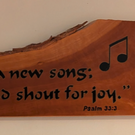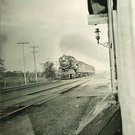There are too many negatives surrounding synturf
To the Editor:
As a longtime supporter of Guilderland school budgets, I was disappointed and worried to see the inclusion of a synturf field in this year’s bond referendum. To understand more, I read articles on synturf and crumb rubber, which increased my concerns about the health of the students using the field, as well as the environmental effects.
Synturf is plastic grass supported by crumb rubber. Crumb rubber is ground tires, which contain several toxic chemicals, including styrene (a neurotoxin, and a probable human carcinogen) and butadiene (a proven human carcinogen).
Black puffs are raised by players in the field. My daughter told me that her daughter came home from her elementary school in Brooklyn with crumb rubber in her sneakers. The school finally removed it from the playground.
Contamination of groundwater is a major risk. A recent study by the Centers for Disease Control and Prevention, reported in The Boston Globe in October 2019, found perfluoroalkyl chemicals (PFAS) in the plastic grass blades of artificial turf fields. PFAS are linked to numerous health problems including cancer and nervous system and immune disorders. PFAS are persistent pollutants that can contaminate drinking water and include the PFOAs that contaminated wells in Hoosick Falls.
The playing fields at the high school are very close to the Black Creek, which runs into the Watervliet Reservoir, the primary source of water for Guilderland. Runoff from the synturf field could contaminate that water source.
Most articles will give synturf a lifespan of eight to 10 years. The bond is for 15 years. What is the cost of its removal? Is the cost of removal and disposal of the synturf included in the bond? Synturf is not recyclable. It will be added to mountains of plastic. It doesn’t seem a good investment for the cost of $2,500,000.
There are too many negatives surrounding synturf. While it has not been conclusively proven to be unsafe, neither has been conclusively proven to be safe. That is too much of a risk to take with our children and the environment.
I will support a bond issue without synturf. On Oct. 7, I will vote no to the present bond issue.
Barbara Doyle
Altamont
Editor’s note: Barbara Doyle is part of the Plastics-Free Future group that formed locally, inspired by a Bennington College course taught by Judith Enck.

